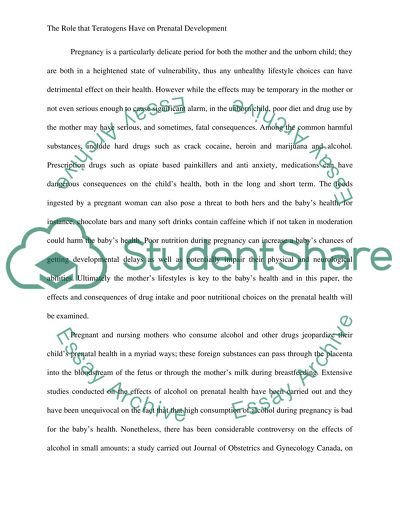Cite this document
(“The Role that Teratogens Have on Prenatal Development Essay”, n.d.)
Retrieved de https://studentshare.org/psychology/1473679-the-role-that-teratogens-have-on-prenatal-development
Retrieved de https://studentshare.org/psychology/1473679-the-role-that-teratogens-have-on-prenatal-development
(The Role That Teratogens Have on Prenatal Development Essay)
https://studentshare.org/psychology/1473679-the-role-that-teratogens-have-on-prenatal-development.
https://studentshare.org/psychology/1473679-the-role-that-teratogens-have-on-prenatal-development.
“The Role That Teratogens Have on Prenatal Development Essay”, n.d. https://studentshare.org/psychology/1473679-the-role-that-teratogens-have-on-prenatal-development.


